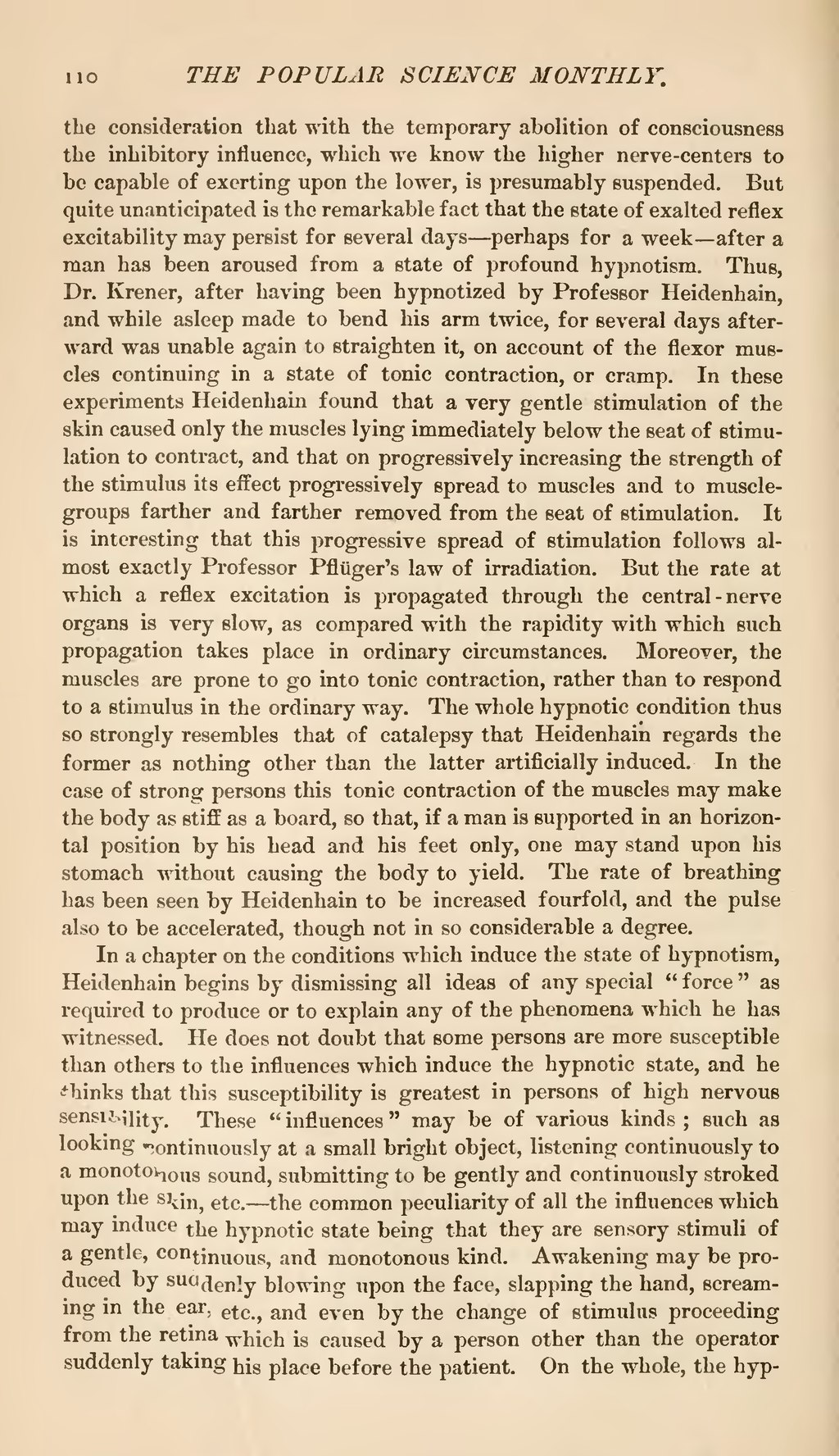the consideration that with the temporary abolition of consciousness the inhibitory influence, which we know the higher nerve-centers to be capable of exerting upon the lower, is presumably suspended. But quite unanticipated is the remarkable fact that the state of exalted reflex excitability may persist for several days—perhaps for a week—after a man has been aroused from a state of profound hypnotism. Thus, Dr. Krener, after having been hypnotized by Professor Heidenhain, and while asleep made to bend his arm twice, for several days afterward was unable again to straighten it, on account of the flexor muscles continuing in a state of tonic contraction, or cramp. In these experiments Heidenhain found that a very gentle stimulation of the skin caused only the muscles lying immediately below the seat of stimulation to contract, and that on progressively increasing the strength of the stimulus its effect progressively spread to muscles and to muscle groups farther and farther removed from the seat of stimulation. It is interesting that this progressive spread of stimulation follows almost exactly Professor Pflüger's law of irradiation. But the rate at which a reflex excitation is propagated through the central-nerve organs is very slow, as compared with the rapidity with which such propagation takes place in ordinary circumstances. Moreover, the muscles are prone to go into tonic contraction, rather than to respond to a stimulus in the ordinary way. The whole hypnotic condition thus so strongly resembles that of catalepsy that Heidenhain regards the former as nothing other than the latter artificially induced. In the case of strong persons this tonic contraction of the muscles may make the body as stiff as a board, so that, if a man is supported in an horizontal position by his head and his feet only, one may stand upon his stomach without causing the body to yield. The rate of breathing has been seen by Heidenhain to be increased fourfold, and the pulse also to be accelerated, though not in so considerable a degree.
In a chapter on the conditions which induce the state of hypnotism, Heidenhain begins by dismissing all ideas of any special "force" as required to produce or to explain any of the phenomena which he has witnessed. He does not doubt that some persons are more susceptible than others to the influences which induce the hypnotic state, and he thinks that this susceptibility is greatest in persons of high nervous sensibility. These "influences" may be of various kinds; such as looking continuously at a small bright object, listening continuously to a monotonous sound, submitting to be gently and continuously stroked upon the skin, etc.—the common peculiarity of all the influences which may induce the hypnotic state being that they are sensory stimuli of a gentle, continuous, and monotonous kind. Awakening may be produced by suddenly blowing upon the face, slapping the hand, screaming in the ear, etc., and even by the change of stimulus proceeding from the retina which is caused by a person other than the operator suddenly taking his place before the patient. On the whole, the hyp-

